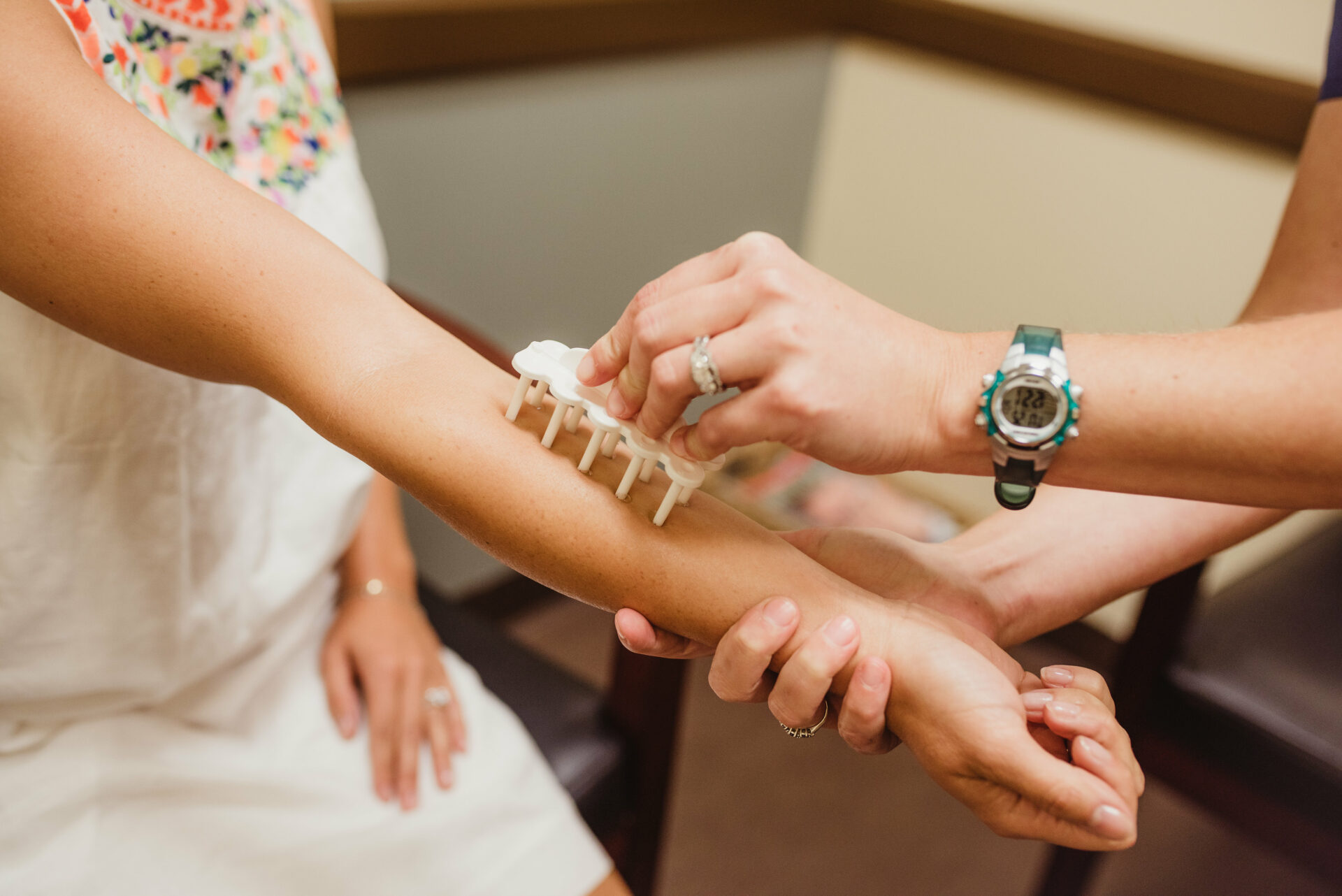Do particular foods plague you with problems? Are you tired of playing detective with your digestive system? It may be time to seek testing. For more than 32 million Americans, food allergies are another part of daily life. However, while these allergies
can be easily monitored and managed, they can often create frustration (and, in severe cases, harm) without the proper diagnosis. But how are these allergies diagnosed?
How are food allergies diagnosed?
Without the proper education and experience, food allergies can be challenging to diagnose since symptoms vary from person to person and can be similar to other unrelated conditions. However, if you suspect a food allergy, it is important to seek a diagnosis to avoid potentially life-threatening reactions. A board-certified allergist will be able to assist you in this process.
Medical History
The first step in diagnosing a food allergy is taking a medical history. Your doctor will ask you about your symptoms, when they occur and what foods you had eaten before experiencing the symptoms. When participating in a medical history, it is crucial to be as specific as possible in your answers. This can help them identify any patterns or triggers.
Skin Prick Test
The skin prick test is one of the most common tests used to diagnose food allergies. This test is usually performed in a board-certified allergist’s office and involves pricking the skin with a small amount of allergen extract. If you are allergic to the substance, you will develop a raised, red bump at the site of the prick within about 15-20 minutes. The size of the bump may indicate the severity of the allergy. While the word “prick” may sound scary, we assure you this procedure is relatively painless!
Blood Test
Another test that can be used to diagnose food allergies is a blood test. This test measures your blood for its amount of immunoglobulin E (IgE) antibodies – a type of antibody produced by the immune system in response to an allergen. If you have a food allergy, your body will produce IgE antibodies specific to that allergen.
Oral Food Challenge
If the skin prick and blood test results are inconclusive, your doctor may recommend an oral food challenge. This test involves eating small amounts of the suspected allergen under medical supervision. During these tests, your allergist will gradually increase the amount of the allergen until a reaction occurs or a large enough amount is consumed to rule allergies out. This test is usually performed in a hospital or allergist’s office, and emergency equipment is always on hand in case of a severe reaction.
Elimination Diet
In some cases, your allergist may ask you to keep a food journal to help determine potential food triggers for your adverse symptoms. This can often be beneficial when food sensitivities are more likely than true IgE-mediated food allergies. The food journal can help to determine which foods might be trigger adverse (non-allergic symptoms) and therefore direct food choice for an elimination diet. With the elimination diet, your physician will help you decide which foods to eliminate from your diet and how long to eliminate those foods. As the foods are slowly re-introduced, you can monitor for symptoms and determine food sensitivities.
Patch Test
A patch test is another type of test that can be used to diagnose food allergies. This test involves placing small amounts of the suspected allergen extract on a patch, which is then applied to your skin for a period of time. If you are allergic to the substance, you will develop a reaction at the patch site.
Challenges in Diagnosing Food Allergies
Diagnosing food allergies can be challenging because symptoms can be similar to other conditions, and some reactions can be delayed, making it difficult to identify the cause. Additionally, some people may have a food intolerance or sensitivity rather than an allergy, which yields similar symptoms not caused by the IgE antibody in the immune system.
False positives and negatives are also possible with diagnostic tests for food allergies. For example, a skin prick test may indicate a possible allergy, but you may not actually be allergic to the food. On the other hand, a blood test may not detect an allergy even if you are allergic to the food. It is also important to understand that it can take multiple tests and visits to an allergist to properly diagnose a food allergy. For this reason, working with a board-certified allergist is always recommended for successful food allergy diagnosis.
Forget Food Allergy Fears with Charleston Allergy and Asthma
Do you or a loved one suspect food allergies are at play? Our board-certified allergists can help eliminate food allergy fears! Our reliable and knowledgeable team works closely with Lowcountry patients to identify the cause of allergens and overcome symptoms. Contact us today to schedule your appointment and learn about your options for allergy testing and immunotherapy treatments.




